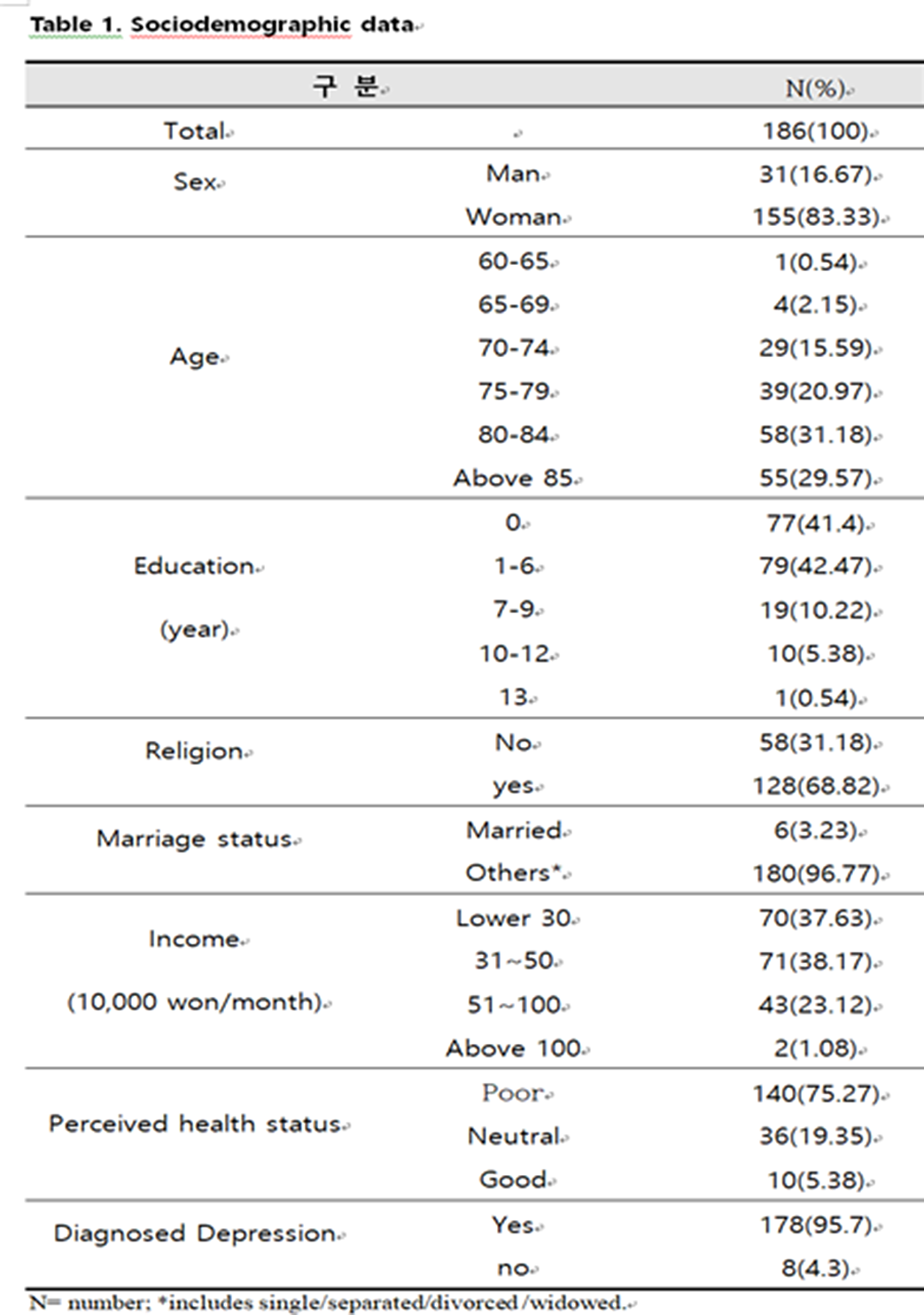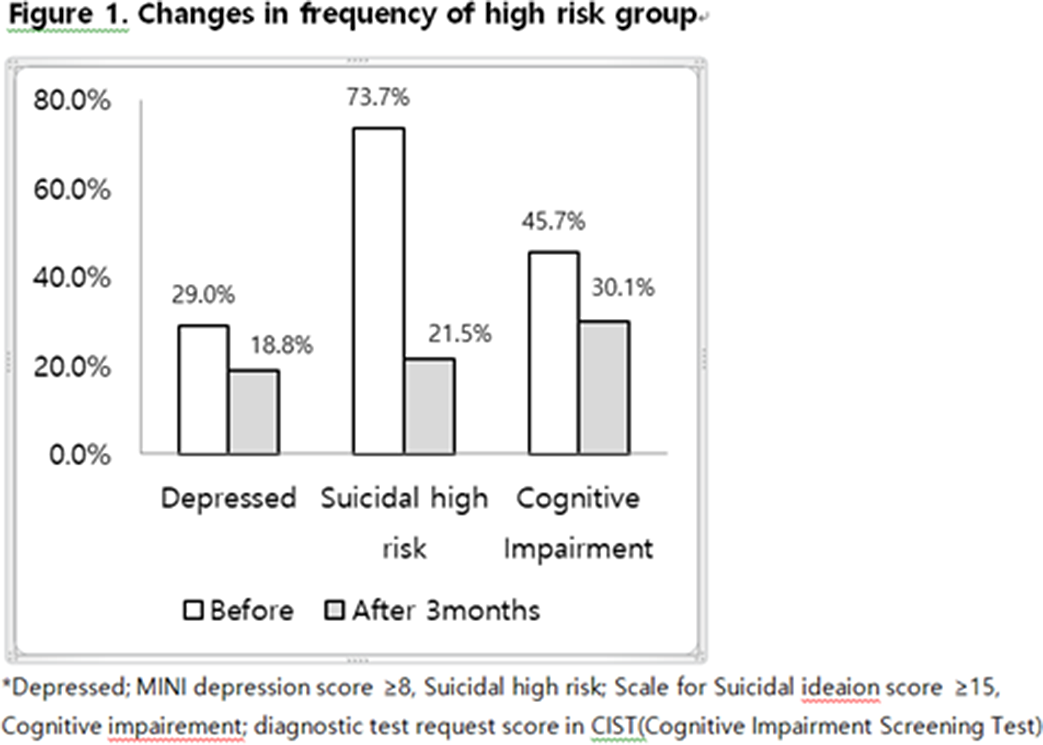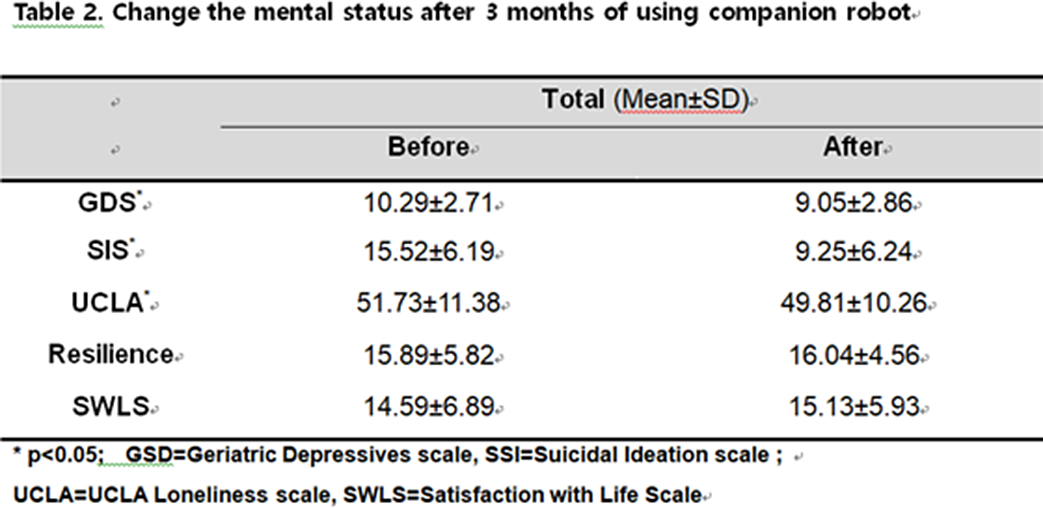No CrossRef data available.
Article contents
The effect of intervention using an emotional recognition coaching companion robot on the elderly people with depression
Published online by Cambridge University Press: 19 July 2023
Abstract
During the COVID-19 pandemic, care for the elderly in the community was greatly limited. Accordingly, the demand for alternative community care have increased to cope with changing situations.
In this study, we tried to find out whether the companion robot improved mood state and related problem in depressive or isolated community dwelling elderly
For 186 community dwelling elderly who have received social welfare service due to depression or social isolation, we provided companion robot that could support their daily living. The robot was equipped with special program that could recognize and respond to the participant’s own emotion. It was part of behavioral activation techniques which is one of powerful treatment for depression. The self-report questionnaires were used to measure changes in cognitive function, depression, suicidality, loneliness, resilience and satisfaction of life. Outcomes were measured before using companion robot and after 3 months, and we compared them.
The elderly using companion robot for 3 months showed improved cognitive function (45.7% to 30.1%), depression (p<0.001), suicidality(p<0.001), and loneliness (p=0.033) in the self-report questionnaire. Resilience(p=0.749) and satisfaction of life (p=0.246) were also improved but not reached significance.
Image:

Image 2:

Image 3:

These findings showed that the use of companion robot with emotional recognition coaching program could help improve depression, cognitive function, loneliness and suicidal ideation. In particular, this effect was also useful for those who were diagnosed with depression. Also if we can put more techniques of behavioral activation programs into robot, it could be useful in community care for depressive and isolated elderly.
None Declared
- Type
- Abstract
- Information
- European Psychiatry , Volume 66 , Special Issue S1: Abstracts of the 31st European Congress of Psychiatry , March 2023 , pp. S79 - S80
- Creative Commons
- This is an Open Access article, distributed under the terms of the Creative Commons Attribution licence (https://creativecommons.org/licenses/by/4.0/), which permits unrestricted re-use, distribution, and reproduction in any medium, provided the original work is properly cited.
- Copyright
- © The Author(s), 2023. Published by Cambridge University Press on behalf of the European Psychiatric Association





Comments
No Comments have been published for this article.